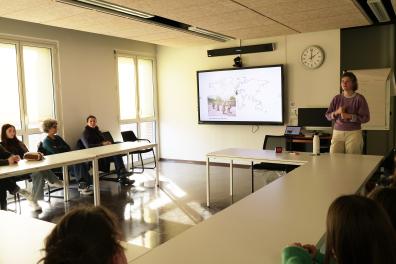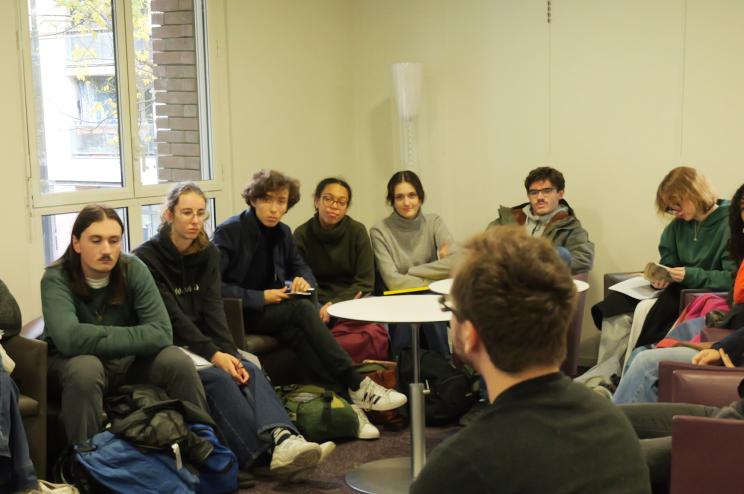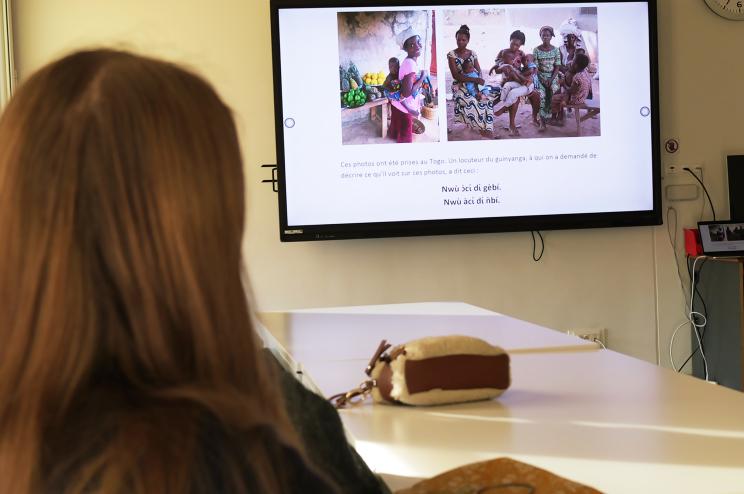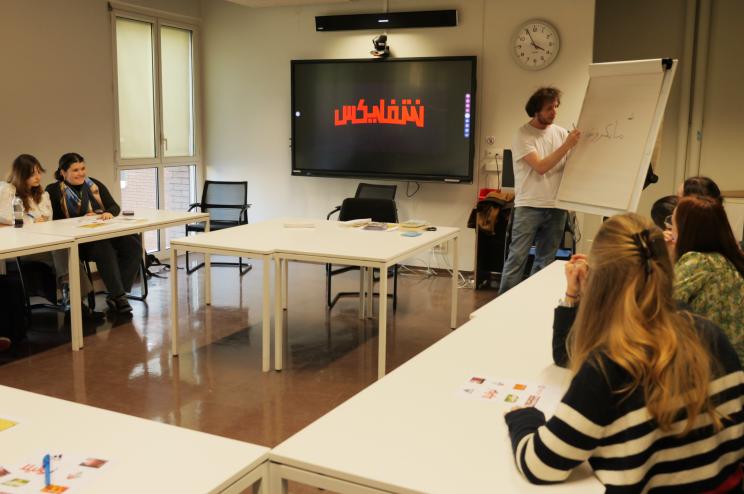Young people from the Nouvelle-Aquitaine region discover research at Inalco
Menu INALCO


Doctor at Inalco, Alexis Markovitch presented his research on the history of cooking and food in Japan. Students realized that in-depth knowledge of a language and culture can prove invaluable for conducting research in the humanities and social sciences. They were also able to tackle the methods of the historical approach: how is history written? from what sources? with what constraints and limits?

With Katya Aplonova, the students this time tackled the shores of linguistics and field research methods. After a period of reflection on the world's languages and their diversity, they discovered ginyanga, a language spoken in Togo to which the PhD student is devoting her research, by exploring one of its particularities: complex predicates, linguistic structures where two or more verbs express one and the same idea.
The workshop led by Mélanie Nittis, ethnomusicologist and lecturer at Inalco, also invoked field research. The evocation of poetic improvisation, sung and accompanied by instruments, practiced by the community of the village of Olympos in Greece, introduced students to a key method of field research: participant observation. Stressing the need for empathy "which enables us to create a relationship with the other", Mélanie Nittis underlined the importance of the researcher's investment in the everyday lives of the people and groups studied.

This day also enabled some groups to learn about bislama, a creole with an English lexical base that is one of Vanuatu's three official languages, or Arabic in its diversity and written dimension. Using authentic documents that are easy to understand - logos - the students were able to decipher the essentials of Arabic script on their own. An approach that echoes that of the cordée as a whole: a program where knowledge is not dispensed from on high, but is built collectively through experimentation and reflection.